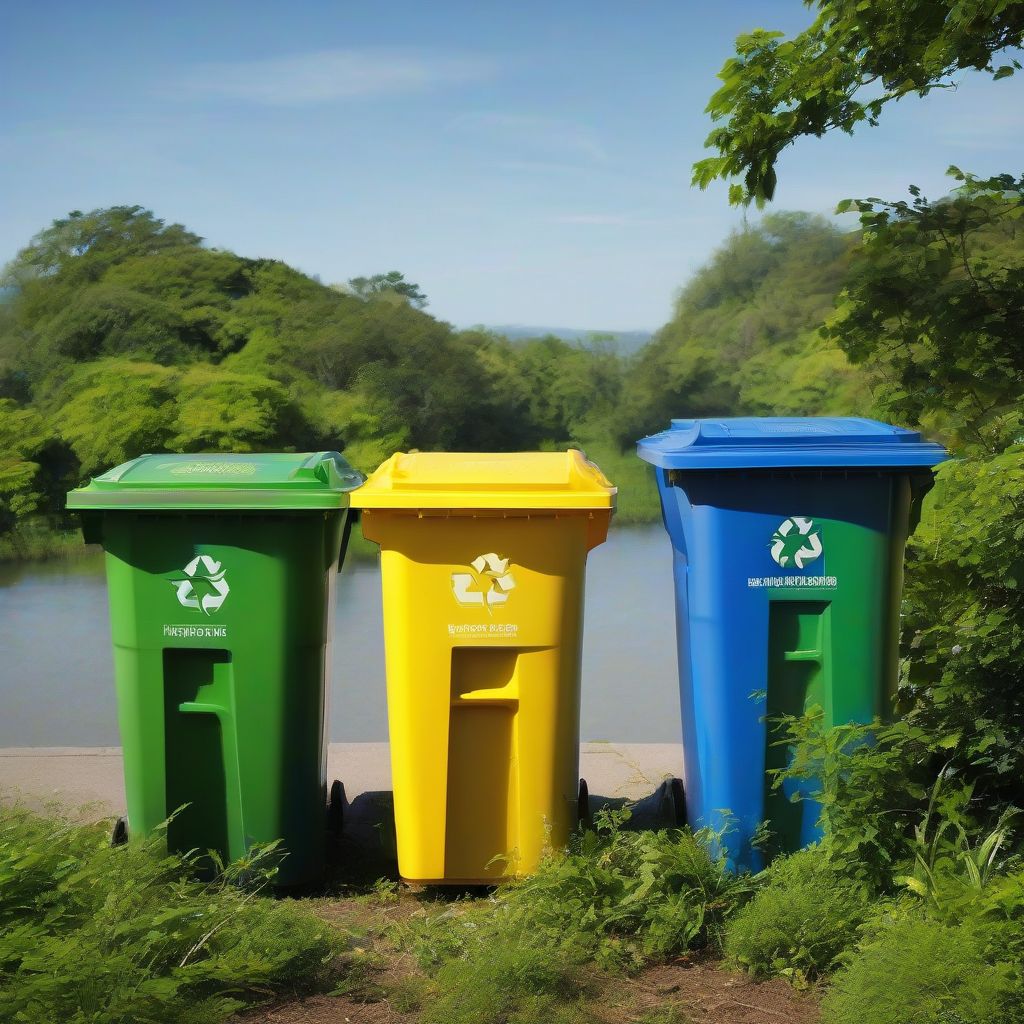Have you ever dreamt of a world where garbage magically transforms into something useful, easing the burden on our planet? It might sound like a fantasy, but that’s the power of recycling in action! It’s more than just sorting your trash; it’s a fundamental step towards a cleaner, healthier, and more sustainable future. Let’s dive into the crucial role recycling plays in waste reduction and why it’s become essential for our planet’s well-being.
Understanding the Magnitude of Waste
Before we explore the magic of recycling, let’s face the reality of our waste problem. As a society focused on consumption, we generate an enormous amount of waste daily. From packaging and food scraps to electronics and old clothes, our trash piles up at an alarming rate. This excessive waste ends up in landfills, polluting our land, water, and air.
 Recycling Bins
Recycling Bins
[amazon bestseller=”recycling bins”]
The Environmental Toll of Waste
The environmental consequences of our wasteful habits are far-reaching:
- Landfill Overflow: Landfills, designed to bury waste, are rapidly reaching capacity. They release harmful greenhouse gases like methane, contributing to climate change.
- Water Contamination: Toxic substances from landfills can seep into the ground, contaminating our water sources and threatening both human and animal health.
- Air Pollution: The incineration of waste, while an alternative to landfills, releases harmful pollutants into the air, further degrading air quality.
How Recycling Turns the Tide
Recycling emerges as a powerful solution to combat this growing waste crisis. At its core, recycling is a transformative process that takes discarded materials and turns them into new, usable products. This simple yet impactful act delivers a multitude of benefits:
1. Conserving Natural Resources
Recycling significantly reduces the need to extract virgin materials from the earth. From paper and cardboard to metals and plastics, recycling allows us to reuse existing resources, lessening the strain on our planet’s finite resources.
2. Reducing Greenhouse Gas Emissions
Manufacturing products from recycled materials typically requires less energy compared to using virgin materials. This energy saving translates into reduced greenhouse gas emissions, contributing to the fight against climate change.
3. Minimizing Pollution
By diverting waste from landfills and incinerators, recycling helps minimize land, water, and air pollution. It reduces the release of harmful pollutants that jeopardize our environment and health.
4. Creating a Circular Economy
Recycling is a key driver in transitioning from a linear “take-make-dispose” economy to a circular economy. In a circular economy, resources are kept in use for as long as possible, reducing waste and maximizing resource efficiency.
The Role We All Play in Waste Reduction
The effectiveness of recycling hinges on collective action. Every individual, household, and community plays a vital role in making a difference:
1. Practice Proper Sorting and Disposal
Familiarize yourself with your local recycling guidelines. Properly sort your waste into designated bins for recyclable materials, ensuring that contaminants don’t hinder the recycling process.
2. Reduce and Reuse Before Recycling
Embrace the waste hierarchy: Reduce your consumption, reuse items whenever possible, and recycle as a last resort. Opt for reusable containers, bags, and water bottles to minimize waste generation in the first place.
3. Support Companies with Sustainable Practices
Choose products made from recycled materials and support businesses that prioritize sustainable practices throughout their supply chains.
4. Advocate for Policy Changes
Encourage your local government and communities to invest in robust recycling programs and infrastructure to support widespread recycling initiatives.
Conclusion: A Sustainable Future Through Recycling
Recycling isn’t just a trend; it’s a necessity for a sustainable future. By understanding its impact and embracing its principles in our daily lives, we can collectively contribute to a cleaner, healthier planet for ourselves and generations to come. Let’s continue to explore innovative recycling solutions, advocate for responsible waste management, and work together to transform our relationship with waste.
Do you have any inspiring recycling stories or tips to share? Let’s keep the conversation going in the comments below!
